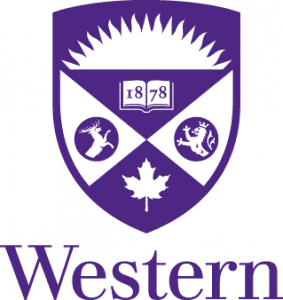Position Title: Imaging Specialist
Employer: University of Manitoba, Department of Pharmacology & Therapeutics
Salary: $60,000-70,000; salary will be commensurate with qualifications and experience.
Expected Start: December 1st, 2022 or earliest availability.
Job Description
The Live-Cell Imaging Facility (LCIF) is a Rady Faculty of Health Sciences (RFHS) supported core platform located within the Neuroscience Research Program on the 4th floor of the Kleysen Institute for Advanced Medicine. The LCIF includes state-of-the-art facilities for intravital multiphoton imaging from behaving small animals, in vitro multiphoton imaging, imaging with laser-capture/microdissection, confocal and super-resolution imaging. LCIF facilities are routinely accessed for day-to-day research activities of highly successful and established RFHS members probing the molecular, genetic and cellular basis of disease.
The LCIF seeks to hire a full-time Research Associate with a strong background in advanced optical microscopy who will oversee day-to-day operations of the LCIF and provide expert-level technical expertise and user support.
Responsibilities:
- Facilitate facility access and promote increased adoption of advanced imaging and analysis techniques.
- Offer in depth training, assistance with experimental design and advanced analysis procedures.
- Consolidate and share collective expertise and best practices among our user base by organizing instructional seminars, tutorials and workshops.
- Assist in the development of post-processing algorithms and software tools, including commercially available and in-house software.
- Promote open access to imaging expertise and tools locally, nationally and internationally by networking with other facilities, curating content hosted on the LCIF website, and by further promoting discoveries and capabilities (e.g. via social media).
- Ensure optimal operation and longevity of imaging facilities by troubleshooting system problems, undertaking routine maintenance and liaising with system manufacturers for scheduled maintenance or repairs.
- Manage bookings, track and report system usage (number of users and hours logged), assist in billing based on usage and maintain training records (number of new users and hours of training provided).
Qualifications, skills and abilities:
- Doctoral degree or equivalent qualifications and experience.
- Experience with advanced optical microscopy (e.g. widefield, confocal or multiphoton imaging) including experimental design, sample preparation, image processing and analysis.
- Experience in training and supervising trainees and staff.
- Ability to troubleshoot and resolve technical problems with imaging equipment or software.
- Ability and willingness to learn new techniques and skills, and to keep abreast of developments in the areas of expertise.
- Effective communication skills, both written and verbal, and enthusiasm for sharing knowledge and expertise with others.
- Demonstrated organizational skills and ability to prioritize tasks to meet objectives.
- Ability to work both independently and as a member of a team is essential.
Interested Candidates should send their CV and cover letter, including a summary of their experience and qualifications for the position described, as well as the names and contact information for academic/research references, to Dr. Michael Jackson (michael.jackson@umanitoba.ca).
Additional information:
The University of Manitoba is committed to the principles of equity, diversity & inclusion and to promoting opportunities in hiring, promotion and tenure (where applicable) for systemically marginalized groups who have been excluded from full participation at the University and the larger community including Indigenous Peoples, women, racialized persons, persons with disabilities and those who identify as 2SLGBTQIA+ (Two Spirit, lesbian, gay, bisexual, trans, questioning, intersex, asexual and other diverse sexual identities). All qualified candidates are encouraged to apply; however, Canadian citizens and permanent residents will be given priority.
If you require accommodation supports during the recruitment process, please contact UM.Accommodation@umanitoba.ca or 204-474-7195. Please note this contact information is for accommodation reasons only.
An inclusive, open and diverse community is essential to excellence and fosters voices that have been ignored or discouraged. To address the Rady Faculty of Health Sciences commitment to equity, diversity and inclusion, and in recognition of the underrepresentation of members of historically and currently excluded groups, we take proactive measures including implicit bias training for all hiring panels. We strive for diversity and cultural safety throughout the hiring process (hiring panels, short-list of candidates, interviews). We encourage you to self-identify any aspect of diversity in your cover letter.
Application materials, including letters of reference, will be handled in accordance with the protection of privacy provision of The Freedom of Information and Protection of Privacy Act (Manitoba). Please note that curriculum vitae may be provided to participating members of the search process.
Contact information
Dr. Michael Jackson
LCIF Director
Associate Professor, Department of Pharmacology & Therapeutics
University of Manitoba
michael.jackson@umanitoba.ca






 This is a 2-year opportunity, with benefits package included, and possibility of renewal for 4 additional years. Salary is commensurate with experience and qualifications.
This is a 2-year opportunity, with benefits package included, and possibility of renewal for 4 additional years. Salary is commensurate with experience and qualifications.